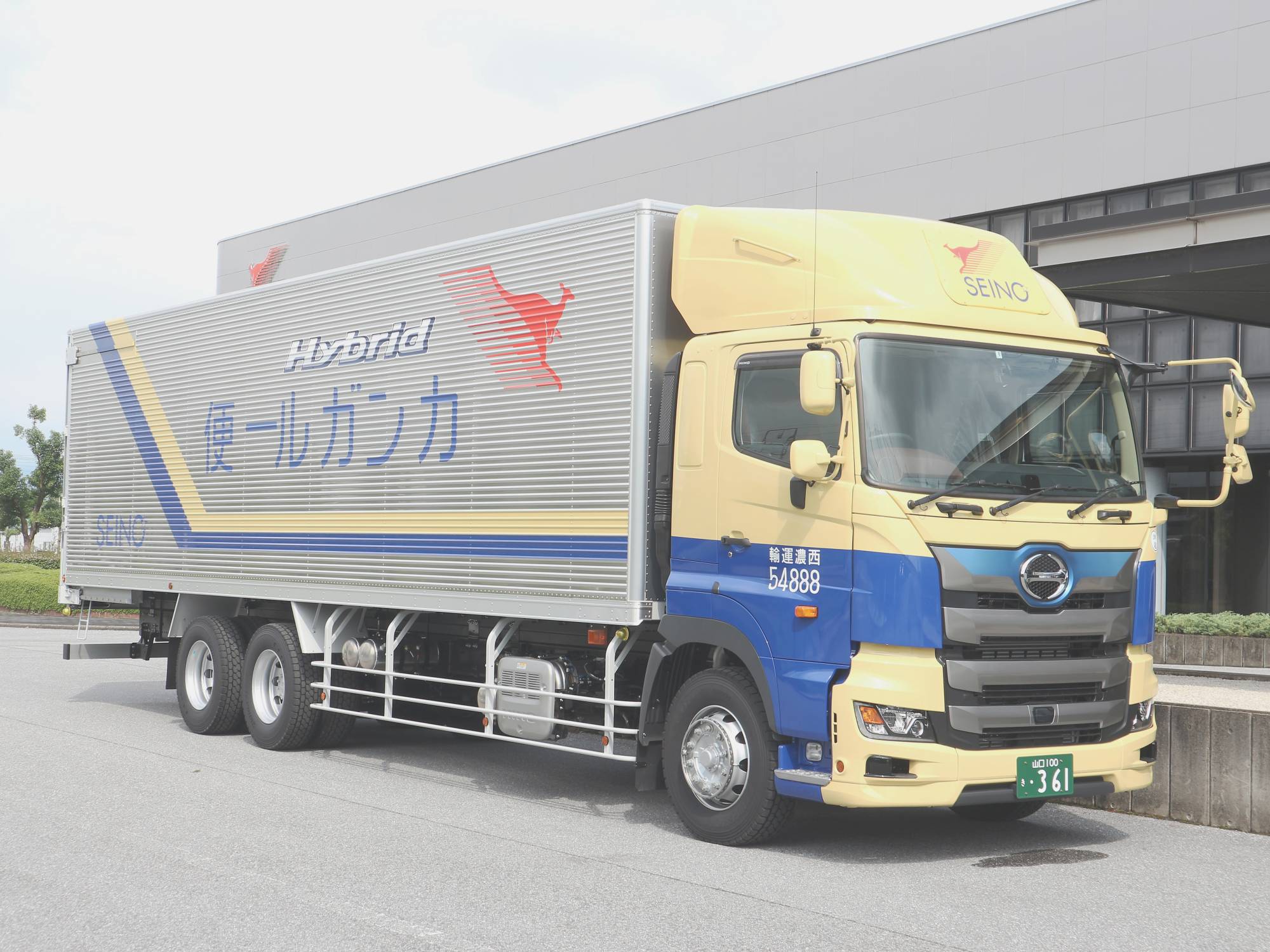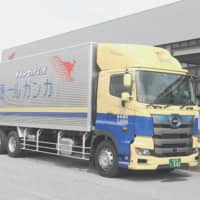Seino Holdings Co. is making sure it stands at the forefront of efforts to reduce carbon dioxide emissions in the economically critical transport industry.
The company, widely known for its trademark red logo of a hopping kangaroo, is based in the city of Ogaki in Gifu Prefecture. The Seino group consists of about 90 companies in Japan and Southeast Asia and specializes in getting goods safely and efficiently from one point to another via truck.
With global attention increasingly focused on climate change and the need to rein in steadily rising global temperatures, the impact of fossil fuel-generated pollution has drawn increasingly detailed scrutiny.
Far from standing still, Seino Holdings’ consolidated subsidiary Seino Transportation Co., on its own and in cooperation with competing transport companies, is actively working to lower carbon emissions in its industry, which is grappling with additional challenges on its climate impact.
For example, Japan is currently undergoing a dramatic demographic change in which the number of elderly citizens is increasing rapidly while the birthrate falls. That means the country’s aging population is set to record a steep decline in coming decades, with huge implications for the supply and demand of labor.
Such effects are already being felt in the transport sector, where, according to the Japan Trucking Association, approximately 40 percent of truck drivers are 50 years of age or older.
To help ease the strain, Seino is taking advantage of a government regulatory change requested by transport companies that allows for a single truck to haul increased loads. That eases demand for drivers but, crucially, has the added effect of cutting carbon dioxide emissions at the same time.
In January 2019, the Ministry of Land, Infrastructure, Transport and Tourism increased the allowed length of cargo containers hauled by truck to 25 meters by hooking together two trailers pulled by a single vehicle. Known as SF25, for “super full trailer,” test runs for the double-linked truck concept began in 2016. Seino Transportation began participating in 2018 with test runs centered on the Shin-Tomei Expressway linking Kanagawa and Aichi prefectures and other roads.
With the official regulatory easing, Seino Transportation along with Nippon Express Co., Japan Post Co. and Yamato Transport Co. in March last year began working together on routes connecting the major Kanto and Kansai regions. The cooperation entails linking their trailers together to enable a doubling of cargo hauled by a single truck. As envisioned, it has reduced demand for drivers and also slashed carbon emissions.
For example, from April of last year to the end of November, the four companies reported a total cut in driving distance from about 1.25 million kilometers to 623,508 kilometers, for a reduction of 50 percent. Carbon dioxide emissions, meanwhile, declined 36.4 percent to 1,526 tons of carbon dioxide from 2,401 tons of carbon dioxide.
Seino has also worked to take advantage of the latest technology to help reduce emissions by utilizing Hino Motors Ltd.’s Hino Profia Hybrid large truck from September of last year.
The vehicle is the first hybrid truck in the world to use an array of artificial intelligence technology. That utilization allows it to anticipate and grasp various factors along a route such as the effect of the load, as well as inclines as much as 100 kilometers ahead.
This is an edited story originally printed for “ESG consortium in focus” on Feb. 3. Information introduced here was up to date at the time of the original article’s publication. To read the full article online, visit https://www.japantimes.co.jp/esg-consortium/2020/02/02/esg-consortium/seino-works-toward-environmental-change/. Download the PDF of this ESG Special



















With your current subscription plan you can comment on stories. However, before writing your first comment, please create a display name in the Profile section of your subscriber account page.